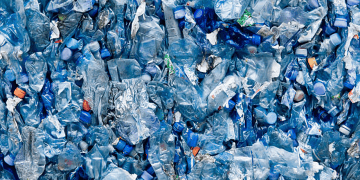In 2024, the European Union (EU) is continuing to send more plastic waste to countries outside of the Organisation for Economic Co-operation and Development (OECD), especially to Asia and Turkey. This growing trend points to ongoing difficulties in managing waste and recycling around the world.
Increasing Export Amounts
Recent data shows that the EU exported 750 million kilograms of plastic waste to non-OECD countries in 2023, a significant jump of 45% compared to the previous year. Turkey is the biggest recipient, taking in 316 million kilograms in 2023, though this is a slight decline from 346 million kilograms in 2022. Other major destinations also included Malaysia and Vietnam, which increased their imports by 283 million kilograms and 48 million kilograms, respectively, in 2023.
Turkey’s Role in Importing Plastic Waste
Turkey has become a key importer of plastic waste from the EU, handling nearly half of all EU plastic waste exports by 2020. However, this has raised concerns about environmental and health issues, including illegal dumping and burning of waste. For instance, a BBC investigation in June 2020 followed plastic waste from the UK to Turkey and found that some was disposed of improperly.
Environmental and Health Concerns
Shipping plastic waste to countries with limited recycling facilities poses serious environmental and health risks. In Turkey, many of the imported plastics are not recycled and instead end up in illegal dumps or are burned, which contaminates soil and water. Similarly, in Vietnam, a major importer, only about 30% of the plastic waste produced locally is sorted correctly, making effective recycling difficult.
New Regulations
To tackle these challenges, the EU has put new rules in place to control plastic waste exports. The updated Waste Shipment Regulation, revised in 2024, aims to provide better oversight of waste exports, including a ban on shipping non-hazardous plastic waste to non-OECD countries by 2026. These regulations are designed to ensure responsible waste management and to promote recycling efforts within the EU.
Conclusion
The ongoing rise in EU plastic waste exports to Asia and Turkey highlights the complexities of managing waste globally. While new regulations are being introduced to solve these problems, it is clear that there is a strong need for thorough strategies to cut down on plastic production and improve recycling both within the EU and in the countries that receive this waste.
Get the latest supply chain report news insights at The Supply Chain Report. For international trade resources, visit ADAMftd.com.
#EUplasticwaste #plasticwasteexports #plasticrecycling #Turkeyplasticimports #AsiaPlasticImports #wastemanagement #environmentalconcerns #plasticpollution #EUregulations #plasticsustainability #WasteShipmentRegulation2024 #OECD #illegalplasticdumping #Vietnamplasticimports #MalaysiaPlasticWaste #plasticrecyclingchallenges #globalwastemanagement #plasticsolutions #EUenvironmentalpolicies #plasticwasteoversight #EUrecycling #wasteexportcontrol
- Latest
- Trending















